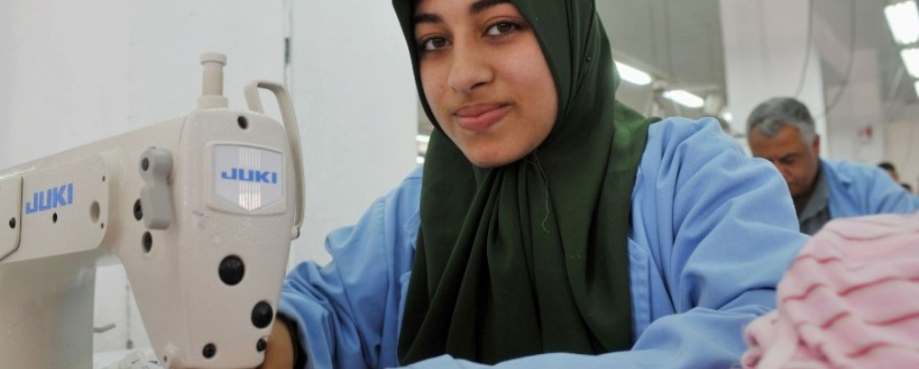
Last week (April 6), new legislation on pay gap reporting came into force. Employers in the UK are now required to reveal the gender pay gap in their workforce. It is the latest law aimed at tackling discrimination in the workplace. It also further underlines the importance the UK Government attaches to corporate reporting on human rights policies, practices and impacts.
New advanced training course: Human rights due diligence
This is part of a growing trend around non-financial reporting. There is a significant shift occurring. Whilst this used to be voluntary, it is now mandatory and an enforceable legal requirement. And not just in the UK.
Last month, France passed a Duty of Care Law. It requires large French companies to publish annual plans on how they will address adverse impacts of their business activities. It is not dissimilar to the UK’s Modern Slavery Act, although is actually broader in scope, because it covers all human rights issues as well environmental impacts.
In February, the Dutch Parliament adopted a Child Labour Due Diligence Bill. If approved by the Senate, companies based in Holland will be required to publicly report on whether child labour is likely to be present in their supply chains and, if so, to develop an action plan to address these risks.
The EU Non-Financial Reporting Directive (2014/95/EU), which all EU member states were required to transpose into law by the end of 2016, now requires companies with 500 or more employees to report on corporate due diligence processes on all human rights issues, (not just trafficking or forced labour). This applies in the UK too.
These pieces of legislation are part of a wider drive to improve corporate responsibility. They also serve to increase corporate accountability and transparency across Europe and beyond.
Protect, respect, remedy
The developments stem from John Ruggie's "Protect, Respect and Remedy" framework, and the guidance outlined in the UN Guiding Principles on Business and Human Rights (UNGPs), the latter of which was endorsed by the UN Human Rights Council back in 2011.
The UNGP’s provided clarity and an internationally agreed normative framework around the role and responsibilities of States and business enterprises. The three principles are:
- the State duty to protect against human rights abuses by third parties, including business enterprises, through policies, regulation, and adjudication;
- the corporate responsibility to respect human rights, which means that business enterprises should act with due diligence to avoid infringing on the rights of others and to address the adverse impacts of their activities; and
- the need for greater access to remedy for victims of business‐related abuse, both judicial and non‐judicial.
These new corporate non-financial reporting requirements represent part of government’s attempts to protect against human rights abuses by business enterprises, by demanding that corporate policies, action plans and strategies around human rights be devised and published.
In response, ETI member companies are developing increasingly sophisticated systems and processes to detect and prioritise risk, and are beginning to think about risks to workers and local communities, rather than just to business reputation. This is how they are working to meet their corporate responsibility to respect human rights.
ETI is seeing an increasing number of companies who now recognise the importance of human rights due diligence, as well as the benefits of integrating ethical trade practices into their business strategies.
Business commitment to human rights increasing
With so much attention around reporting on risk and negative impacts, it’s also important to remind ourselves that businesses have the opportunity and indeed are creating hugely important positive impacts on workers, communities and societies across the world by creating well paid, safe, stable employment.
The proliferation of mature human rights and sustainability policies, detailed Modern Slavery statements and other non-financial reporting efforts demonstrates an increasing commitment to respecting human rights, and allocating increasing amounts of resources to achieving this. These efforts are slowly improving transparency in internal business operations and across global supply chains.
Progress is not uniform across all sectors or countries. And most business enterprises appear to be failing in their duty to ensure that access to remedy is provided to victims of business-related abuses.
Nevertheless, European governments have raised the bar. There is now an expectation, as set out in the UNGP’s and reflected in this new legislation, that not just responsible businesses, but all companies undertake the work necessary to mitigate actual and potential negative impacts. This applies not just to those impacts that businesses may cause directly, but also those to which they contribute indirectly.
Human rights due diligence
Company due diligence – their risk assessment, mitigation efforts and provision of remedy, is increasingly being scrutinised, critiqued and criticised. Whether it’s through non-financial reporting requirements, or through other initiatives such as the new Corporate Human Rights Benchmark (CHRB), which rates and ranks human rights performance, companies are increasingly being judged and held to account by consumers, investors, business partners, campaigning NGOs and the media.
The drive for greater transparency and accountability is only going to increase in the years ahead. The trend is now clear – companies can either choose to be ahead of or behind the curve.
For information on Human Rights Due Diligence, see ETI’s new Framework which serves as a guide for companies to help manage and mitigate labour rights risks, and understand why engagement, negotiation and collaboration is the best way to succeed.
